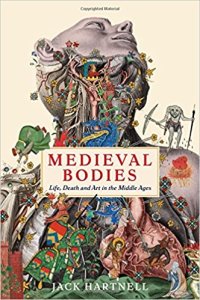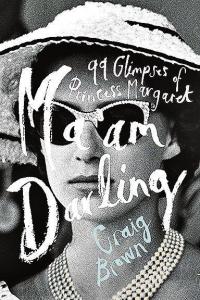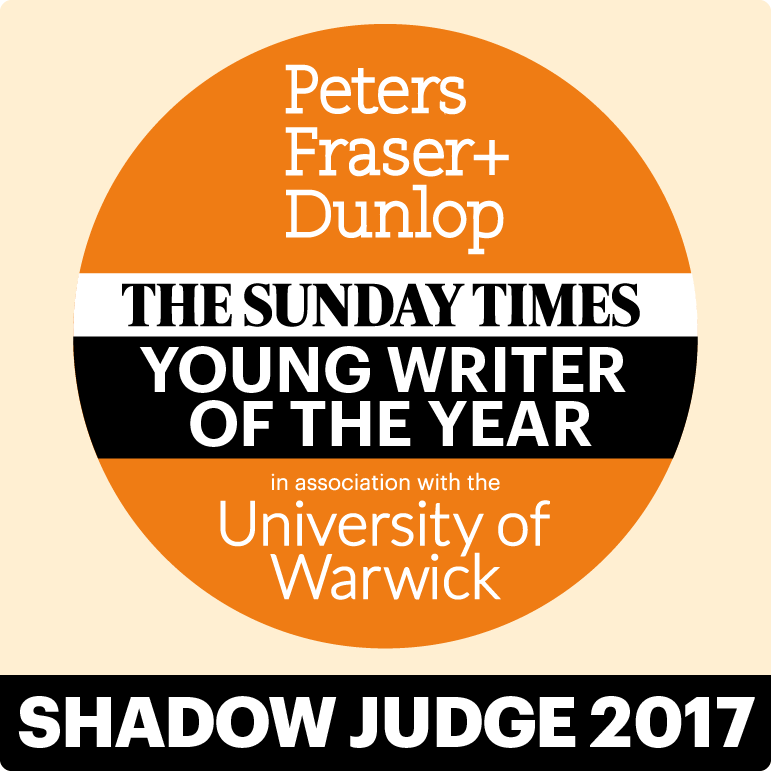 Medieval Bodies: Life, Death and Art in the Middle Ages by Jack Hartnell makes a convincing case against the widely held perception of the Middle Ages as a bloodthirsty and violent period of history where beliefs about medicine were guided primarily by superstition. Instead, the reality is shown to be very different in Hartnell’s examination of how medieval people experienced their physical selves. Each chapter of this lavishly illustrated book focuses on a different part of the body and explores their cultural significance and how medieval attitudes towards them were shaped by a range of influences.
Medieval Bodies: Life, Death and Art in the Middle Ages by Jack Hartnell makes a convincing case against the widely held perception of the Middle Ages as a bloodthirsty and violent period of history where beliefs about medicine were guided primarily by superstition. Instead, the reality is shown to be very different in Hartnell’s examination of how medieval people experienced their physical selves. Each chapter of this lavishly illustrated book focuses on a different part of the body and explores their cultural significance and how medieval attitudes towards them were shaped by a range of influences.
Drawing on art, medicine, literature, science, politics, history, philosophy and much more, I think Hartnell sometimes tries to tackle too much here. The geographical range of sources spanning across Europe and the Middle East is impressive but the scope is so wide that it is a lot to grasp for non-expert readers, whereas I think those who are more knowledgeable about this period of history may find the analysis too thin in some areas. However, Hartnell’s evident passion for his subject is infectious and I think ‘Medieval Bodies’ could be a possible contender for the next Wellcome Book Prize longlist.
 Anyone who has watched ‘The Crown’ on Netflix will surely agree that Vanessa Kirby’s turn as Princess Margaret is one of the stand-out performances of the first two series so far and is partly why I read Ma’am Darling: 99 Glimpses of Princess Margaret by Craig Brown which recently won the James Tait Black Prize for Biography. Books about the modern royals tend to be written by or aimed at fawning admirers or those holding a grudge, and this is reflected in the wildly contradictory descriptions of Princess Margaret that Brown uncovered in his research ranging from “quite splendid, droll … beguiling” to “tiresome, spoiled, idle and irritating”. While Brown tends to dwell on the latter qualities which provide the more entertaining material here thanks to her legendary and easily quotable put-downs, it is also clear that Princess Margaret is under-recognised as the real trailblazer towards the modernisation of the Royal Family in the 20th century, especially where marriage and divorce were concerned.
Anyone who has watched ‘The Crown’ on Netflix will surely agree that Vanessa Kirby’s turn as Princess Margaret is one of the stand-out performances of the first two series so far and is partly why I read Ma’am Darling: 99 Glimpses of Princess Margaret by Craig Brown which recently won the James Tait Black Prize for Biography. Books about the modern royals tend to be written by or aimed at fawning admirers or those holding a grudge, and this is reflected in the wildly contradictory descriptions of Princess Margaret that Brown uncovered in his research ranging from “quite splendid, droll … beguiling” to “tiresome, spoiled, idle and irritating”. While Brown tends to dwell on the latter qualities which provide the more entertaining material here thanks to her legendary and easily quotable put-downs, it is also clear that Princess Margaret is under-recognised as the real trailblazer towards the modernisation of the Royal Family in the 20th century, especially where marriage and divorce were concerned.
The structure of ‘Ma’am Darling’, which is composed of 99 short chapters in a vaguely thematic and chronological order, is as unconventional as its subject, and is perfect for recounting various pithy and gossipy anecdotes about her. Unusually for a biography, some of the chapters are speculative or straight-up parodies which may not go down too well with ardent monarchists, such as an amusing imagining of Queen Margaret’s Christmas Broadcast 1977 in which she wishes her subjects “a happy Christmas, not because I really want to, but because I suppose I must.” ‘Ma’am Darling’ is a frivolous royal biography – an interesting experiment with the form which largely succeeds because its main subject is so ripe for satire.
 In stark contrast, Hired: Six Months Undercover in Low-Wage Britain by James Bloodworth is an eye-opening piece of narrative non-fiction about the realities of the modern-day gig economy in which millions of workers have zero hours contracts where the availability of work is never guaranteed and basic employment rights are non-existent. Bloodworth worked as an Amazon warehouse “picker” in Staffordshire, a social care worker in Blackpool, a call centre worker in a former mining town in Wales and an Uber driver in London. He gets to know the communities who rely on this precarious type of employment, and outlines how he budgets his finances week by week, one of the key consequences being how difficult it is to avoid debt and eat healthily on a low wage.
In stark contrast, Hired: Six Months Undercover in Low-Wage Britain by James Bloodworth is an eye-opening piece of narrative non-fiction about the realities of the modern-day gig economy in which millions of workers have zero hours contracts where the availability of work is never guaranteed and basic employment rights are non-existent. Bloodworth worked as an Amazon warehouse “picker” in Staffordshire, a social care worker in Blackpool, a call centre worker in a former mining town in Wales and an Uber driver in London. He gets to know the communities who rely on this precarious type of employment, and outlines how he budgets his finances week by week, one of the key consequences being how difficult it is to avoid debt and eat healthily on a low wage.
‘Hired’ isn’t a book which seeks to provide definitive answers to the big questions about the future of the labour market – the full impact of Brexit on these sectors could easily be the subject of a sequel – but it is a thoughtfully written account about social injustice and the human cost of the type of work which frequently borders on exploitation. Read this book, just don’t buy it from Amazon.





I’ve come to dislike the term ‘gig economy’. It lends a hip glamour to what is often plain old exploitation. I like your final sentence!
LikeLike
Thanks! Amazon sounded like it was the worst of the four jobs he did.
LikeLike
Channel 4 news did an excellent report on their appalling treatment of workers around four years ago. I’ve not bought anything from them since.
LikeLike
It doesn’t sound like the situation has improved much since then unfortunately.
LikeLike
Good to keep in touch with non-fiction. Mediaeval Bodies was in the LRB, I think your review is more readable!
LikeLike
Haha, thanks!
LikeLike
I’m not interested in the royals at all but I’ve been drawn to this one because I got the impression that it was a bit of a warts and all biography. Plus, I always thought that Margaret seemed like the most fun of all the Royal Family!
LikeLike
She definitely is the most fun – I couldn’t imagine a similar biography ever being written about the other royals!
LikeLike
Fascinating! I love non-fiction. I’d like to read all three of these 🙂
LikeLike
Hope you enjoy them!
LikeLiked by 1 person
Hired sounds really enlightening.
LikeLike
It’s excellent and Bloodworth is very good at articulating the dire realities of the experience.
LikeLiked by 1 person
Medieval Bodies is certainly a striking book! Did you read a hard copy to fully appreciate the illustrations? I’ve eyed it up in the Wellcome shop before but think it’s one I’d only skim so really would prefer to read a library copy if I could ever find one.
I’d be keen to read Hired.
LikeLike
Yes, I borrowed it from the library and definitely recommend getting hold of a hard copy if you can. P.S. happy belated birthday!
LikeLiked by 1 person
Medieval Bodies sounds interesting
LikeLike
Yes it is very interesting, and the illustrations are fantastic.
LikeLike
I can’t wait to read Ma’am Darling!
LikeLike
It’s very funny!
LikeLike
Pingback: The Wellcome Book Prize 2019: Predictions | A Little Blog of Books
Pingback: My Most Anticipated Books of 2020 | A Little Blog of Books
Pingback: Nickel and Dimed by Barbara Ehrenreich | A Little Blog of Books
Pingback: One Two Three Four: The Beatles in Time by Craig Brown | A Little Blog of Books
Pingback: Books I Read in November | A Little Blog of Books